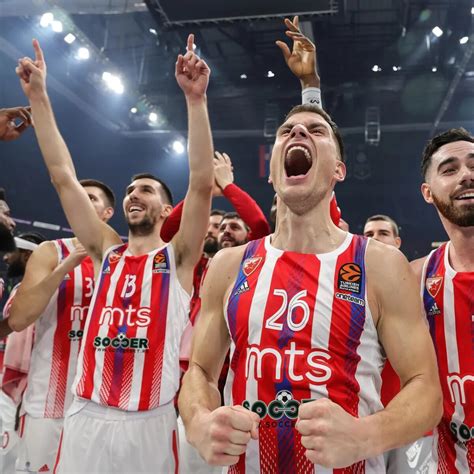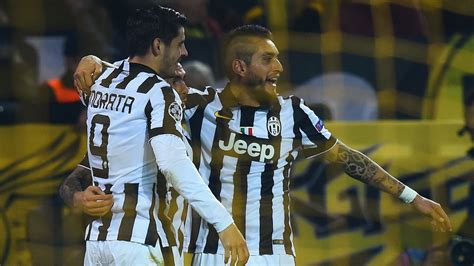Explore Monaco’s rich football history, key players, strategic tactics, and future challenges impacting European football in this comprehensive blog post.Monaco’s Journey in Europe: Facing Crvena Zvezda
In the world of European football, few stories resonate as powerfully as that of AS Monaco—a club steeped in history and ambition. As Monaco prepares to face Crvena Zvezda, the journey of this iconic team unfolds a narrative filled with triumphs, challenges, and perseverance. From its storied past to its key players who have influenced its European campaign, each chapter of Monaco’s journey showcases the club’s relentless drive for greatness. In this article, we delve into the historical background of Monaco’s football journey, explore the tactics and strategies that will be employed against Crvena Zvezda, and consider the broader impact of Monaco’s presence on European football. As we look ahead, we also address the future challenges that lie ahead for this esteemed club. Join us as we navigate the fascinating world of AS Monaco and its ongoing quest for glory on the European stage.
The Historical Background Of Monaco’s Football Journey
Monaco’s football history dates back to the late 19th century, with the establishment of the club AS Monaco FC in 1910. Nestled in the small yet affluent principality of Monaco, the team’s early years saw its participation in regional leagues, gradually making a name for itself in French football. Over the decades, Monaco has evolved into a formidable force in both domestic and European competitions.
In the mid-20th century, the club began to assert its dominance within France, winning its first Ligue 1 title in 1961. This success paved the way for a period of growth and talent development, which set the foundation for Monaco’s future achievements. The club’s ability to nurture young talents has been a cornerstone of Monaco’s journey, frequently serving as a stepping stone for players who later shine on the international stage.
The late 1980s and early 1990s marked a golden era for the club, with legendary coach Arsène Wenger at the helm. Under his guidance, Monaco secured multiple league titles and demonstrated its competitiveness in European competitions. The pinnacle of Monaco’s European success came in 2004 when the team reached the UEFA Champions League final, showcasing its ability to compete against Europe’s elite.
Monaco’s journey has been characterized by ups and downs, including periods of financial instability and relegation battles. Yet, the club has always managed to bounce back, repeatedly demonstrating resilience and determination. Today, Monaco is seen as a vital player in European football, balancing its historic legacy with a modern approach to the game.
The club’s rich history is interwoven with moments of glory and drama, contributing to a narrative that continues to evolve. As
Key Players Influencing Monaco’s Journey In Europe
Throughout Monaco’s journey in European football, several key players have significantly impacted the team’s performance and success on the international stage. These athletes have demonstrated exceptional skills, leadership, and determination, all of which are crucial during high-stakes matches.
One of the most notable players in recent years is Kylian Mbappé. His pace, dribbling ability, and goal-scoring prowess helped propel Monaco to the UEFA Champions League semi-finals in the 2016-2017 season. Mbappé’s knack for finding the back of the net not only won matches but also earned him worldwide recognition, marking him as one of the future stars of football.
Another critical figure is Bernardo Silva, who played a pivotal role in Monaco’s midfield. Silva’s vision, creativity, and tactical intelligence allowed him to orchestrate plays and create scoring opportunities for his teammates. His ability to adapt to various playing styles also made him a valuable asset in critical European fixtures.
The defensive line has also seen influential players such as Samuel Umtiti and Yuri Tielemans, who contributed significantly to maintaining the solidity and strength necessary for a successful European campaign. Their defensive skills and strategic positioning allowed Monaco to withstand some of the strongest European attacks.
The leadership of coach Leonardo Jardim played a vital role in shaping the team’s identity and on-field strategies during their European outings. His tactical acumen and ability to develop young talents turned Monaco into a formidable opponent in European competitions.
These players and their contributions collectively illustrate the essence of Monaco’s journey in Europe, showcasing the blend of talent and strategy that has characterized the club’s efforts on the continental stage.
Tactics And Strategies Against Crvena Zvezda
Monaco’s approach to facing Crvena Zvezda has always been characterized by a blend of tactical precision and strategic foresight. As a team competing on the European stage, understanding the strengths and weaknesses of their opponent is paramount.
One of the key tactics that Monaco has employed is the utilization of a high-pressing game. By applying pressure in the midfield, Monaco can disrupt Crvena Zvezda’s build-up play. This strategy not only forces errors but also creates opportunities for quick counter-attacks, leveraging Monaco’s speed in transition.
Additionally, Monaco’s defensive setup is crucial when facing Crvena Zvezda. They often deploy a solid backline that can quickly switch between a four-man defense and a three-man setup, depending on the flow of the game. This flexibility allows them to tighten their defense against Crvena Zvezda’s aerial threats while also maintaining width to counter their wingers.
Another effective strategy includes exploiting the wings. By stretching Crvena Zvezda’s defense, Monaco’s wingers can create space for midfield runners. This can be particularly beneficial when looking to deliver quality crosses or play intricate one-twos to penetrate the defensive line.
Furthermore, set pieces are another area where Monaco aims to find an advantage. The team invests a great deal of time in rehearsing various corner and free-kick routines, recognizing that scoring from set pieces can be a game-changer, especially in tightly contested matches.
In summary, Monaco’s tactical depth—marked by high pressing, defensive flexibility, exploitation of width, and prowess in set pieces—plays an integral role in their journey through Europe. Balancing these strategies effectively can be the key to achieving successful outcomes against formidable opponents like Crvena Zvezda.
By focusing on these aspects, Monaco not only enhances its chances for success but continues to carve out a notable path in the narrative of Monaco’s journey in European football.
Impact Of Monaco’s Journey On European Football
Monaco’s journey in European football has significantly influenced the landscape of the sport on the continent. Known for developing young talents and embracing an attacking style of play, the club has made a mark that extends beyond its immediate successes.
Firstly, Monaco’s journey serves as a blueprint for other clubs, particularly those in smaller leagues. They have demonstrated that with effective scouting and player development, it is possible to compete with larger clubs that have substantial financial backing. This has encouraged a number of teams across Europe to invest in youth academies and create a robust pipeline of talent, reminiscent of Monaco’s own strategy.
Furthermore, Monaco’s remarkable runs in European competitions have brought renewed interest in the Ligue 1 as a competitive league. This elevation has not only benefitted Monaco but has also highlighted the quality of other teams in the league. Consequently, it has increased visibility and marketability for Ligue 1 on a global scale.
Additionally, Monaco’s style of play, which hinges on creativity and offensive strength, has set a precedent for attacking football. The club’s memorable European matches have often showcased thrilling encounters, capturing the hearts of football fans around the world and encouraging other teams to adopt a more aggressive and entertaining approach.
Moreover, the club’s success in the transfer market has proven that strategic buying and selling of players can yield significant profits while maintaining a competitive edge. This model has inspired clubs to rethink their financial strategies and be more astute in the player market.
Monaco’s journey has had a profound impact on European football. It has demonstrated how clubs, regardless of their size, can make significant contributions to the sport through talent development, engaging playing styles, and smart financial management. As Monaco continues to push boundaries, their influence will likely shape the future of European football for years to come.
Looking Ahead: Future Challenges For Monaco’s Journey
As Monaco’s journey in European football continues to unfold, the club faces a series of challenges that will test their resilience and ambition. Building on past experiences while preparing for the future is crucial for the team’s success.
One significant challenge is maintaining squad depth and quality amidst potential injuries or loss of key players. Monaco needs to ensure they can replace players effectively without compromising their competitive edge. This requirement often leads to intensive scouting and strategic investments in the transfer market.
Another challenge lies in competing against clubs with larger budgets and more extensive resources. Teams from major leagues often attract top talent and can invest heavily in facilities and marketing. Monaco must leverage its attractive location and storied history to continue drawing in quality players and staff.
Moreover, navigating the complex regulations of UEFA, particularly regarding Financial Fair Play, poses another hurdle. Adhering to these guidelines while striving for success on the pitch requires careful financial planning and execution.
Fostering young talent remains a priority for Monaco. The club has a well-established reputation for developing players, which presents the challenge of sustaining and enhancing their academy’s capabilities. Nurturing young stars who can contribute to the first team is essential for long-term success.
As Monaco’s journey progresses, the club must remain agile and adaptable in addressing these challenges. By focusing on squad management, financial prudence, competition strategy, and youth development, Monaco can continue to build on its prestigious legacy in European football.
Frequently Asked Questions
What is the significance of Monaco’s journey in Europe?
Monaco’s journey in Europe showcases their ability to compete at a high level against various European teams, highlighting their growth and ambitions in international football.
How did Monaco fare in their match against Crvena Zvezda?
Monaco had a challenging match against Crvena Zvezda, demonstrating both resilience and skill as they aimed to secure important points in their European campaign.
What are the key players to watch in Monaco’s squad during European matches?
Key players to watch in Monaco’s squad include their star forwards and skilled midfielders, who have the potential to make a significant impact in crucial battles on the field.
What challenges did Monaco face while competing in Europe?
Monaco faced challenges such as tough competition from well-established clubs, the pressure of high-stakes matches, and the need to adapt their strategies to different playing styles.
What are the historical performances of Monaco in European competitions?
Historically, Monaco has had a mixed performance in European competitions, with notable successes including reaching the UEFA Champions League final, showcasing their capabilities on the continental stage.
How does Crvena Zvezda compare to Monaco in European football?
Crvena Zvezda, known for its passionate fanbase and rich history, provides a tough contest for teams like Monaco, making their matches highly competitive due to their strong defensive play and tactical approach.
What are the expectations for Monaco moving forward in their European campaign?
Expectations for Monaco moving forward include building on their recent performances to progress further in the tournament, aiming for a strong finish and potentially reaching the later stages of the competition.







Great article! I love how you highlighted Monaco’s rise and tactical approaches. However, I wonder if they might struggle to keep up against teams with much larger squads? Also, while nurturing young talent is important, can they sustain success without big signings every now and then? Thanks for the insights!